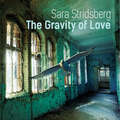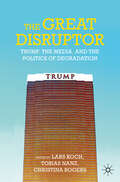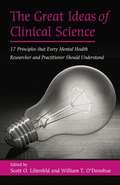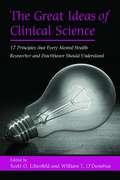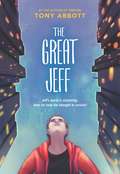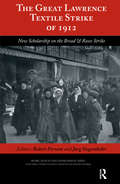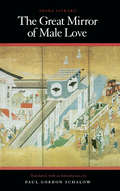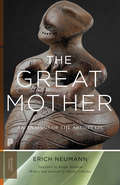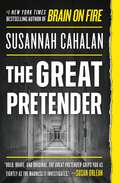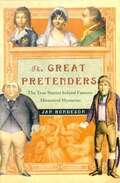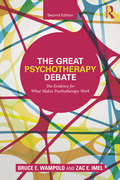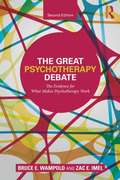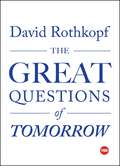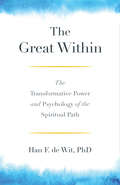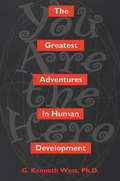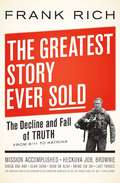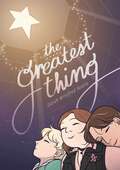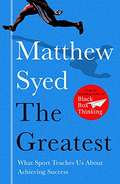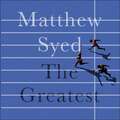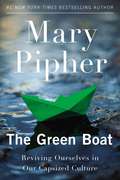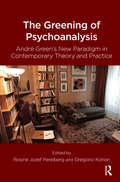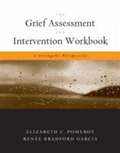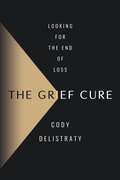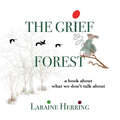- Table View
- List View
The Gravity of Love
by Sara StridsbergA dazzlingly inventive and acclaimed novel set in a Stockholm psychiatric hospital - by one of Sweden's most exciting literary talents"I'll put my head in the oven so you know where I am," he whispers, kissing her neck.Jim - charming, captivating, much loved by his women friends - has attempted suicide several times. Over his period of incarceration at the Beckomberga hospital for the mentally unstable, he voices his determination to succeed. Some day soon, he tells his daughter - as he has earlier told his mother and his wife - he will swallow sixty tablets, help them down with a bottle of whisky, and swim impossibly far out into the Atlantic.Will he, really? This question plagues Jim's daughter, the narrator of this powerful novel, who is as addicted to the hospital as her father is to alcohol. Through her subtle observations we understand the emotional needs of diehard alcoholics, the rationally uxoricidal, and other seemingly normal inhabitants of a psychiatric unit in the process of shutting down, depriving them of the only place they have known as home.A Magic Mountain for our times, for listeners of Eimear McBride and Alexander Masters.Translation (c)2016 Deborah Bragan-Turner (P)2016 WF Howes Ltd
The Great Disruptor: Trump, the Media, and the Politics of Degradation
by Lars Koch Tobias Nanz Christina RogersThe January 6 attack on the U.S. Capitol was the peak of Donald Trump&’s populist strategy during his first term. His goal was to gain support through confrontation and by portraying others as enemies. This book examines Trump&’s public image from a culture and media studies perspective. It explores how his political style during his rise to the presidency was shaped by social conflicts, how he escalated these tensions, and how he benefited from polarization. The contributions focus on Trump&’s first term, highlighting how his rhetoric during the Black Lives Matter movement and the COVD-19 crisis, as well as his promotion of conspiracy theories and attacks on political institutions, pushed American society to the brink of civil war. They discuss Trump&’s use of media and his politics of emotion, framing him as the &“Great Disruptor&” in the context of popular culture, fragmented public discourse, and aggressive rhetoric.
The Great Ideas of Clinical Science: 17 Principles that Every Mental Health Professional Should Understand
by Scott O. Lilienfeld William T. O'Donohue<p>The idea that there is a fundamental rift between researchers and practitioners should not come as a surprise to anyone familiar with the current literature, trends, and general feelings in the field of clinical psychology. Central to this scientist-practitioner gap is an underlying disagreement over the nature of knowledge - namely that while some individuals point to research studies as the foundation of truth, others argue that clinical experience offers a more adequate understanding of the causes, assessment, and treatment of mental illness. <p>The Great Ideas of Clinical Science is an ambitious attempt to dig beneath these fundamental differences, and reintroduce the reader to unifying principles often overlooked by students and professionals alike. The editors have identified 17 such universals, and have pulled together a group of the most prolific minds in the field to present the philosophical, methodological, and conceptual ideas that define the state of the field. Each chapter focuses on practical as well as conceptual points, offering valuable insight to practicing clinicians, researchers, and teachers of any level of experience. Written for student, practitioner, researcher, and educated layperson, this integrative volume aims to facilitate communication among all mental health professionals and to narrow the scientist-practitioner gap.</p>
The Great Ideas of Clinical Science: 17 Principles that Every Mental Health Professional Should Understand
by Scott O. Lilienfeld William T. O'DonohueThe idea that there is a fundamental rift between researchers and practitioners should not come as a surprise to anyone familiar with the current literature, trends, and general feelings in the field of clinical psychology. Central to this scientist-practitioner gap is an underlying disagreement over the nature of knowledge - namely that while some individuals point to research studies as the foundation of truth, others argue that clinical experience offers a more adequate understanding of the causes, assessment, and treatment of mental illness. The Great Ideas of Clinical Science is an ambitious attempt to dig beneath these fundamental differences, and reintroduce the reader to unifying principles often overlooked by students and professionals alike. The editors have identified 17 such universals, and have pulled together a group of the most prolific minds in the field to present the philosophical, methodological, and conceptual ideas that define the state of the field. Each chapter focuses on practical as well as conceptual points, offering valuable insight to practicing clinicians, researchers, and teachers of any level of experience. Written for student, practitioner, researcher, and educated layperson, this integrative volume aims to facilitate communication among all mental health professionals and to narrow the scientist-practitioner gap.
The Great Jeff
by Tony Abbott<P><P> Perfect for fans of Gary D. Schmidt comes the companion to the modern classic Firegirl from acclaimed writer Tony Abbott. Life hasn't been great for Jeff Hicks. <P><P>After years at his beloved St. Catherine's, he's forced to spend eighth grade in the public middle school, which he hates. He's no longer speaking to his former best friend, Tom Bender, because of "that burned girl" Jessica Feeney. <P><P>But worst of all, his family is changing, and it's not for the better. <P><P>When his mom comes home announcing that she's lost her job, Jeff begins to worry about things far beyond his years: How will they pay the rent? Will his absentee dad step up and save the day? Is his mom drinking too much? And ultimately, where will they live? <P><P>The Great Jeff is a powerful look at the life of a troubled boy who finds his life spiraling out of control.
The Great Lawrence Textile Strike of 1912: New Scholarship on the Bread & Roses Strike (Work, Health and Environment Series)
by Robert Forrant Charles Levenstein John Wooding Jurg K Siegenthaler"In Lawrence, Massachusetts, fully one-half of the population 14 years of age or over is employed in the woolen and worsted mills and cotton mills". Thus begins the federal government's Report on Strike of Textile Workers in Lawrence, Massachusetts in 1912 . This book follows up, one hundred years later. The story's retelling offers readers an exciting reexamination of just how powerful a united working class can be. The Great Lawrence Textile Strike of 1912 - the Bread and Roses Strike - was a public protest by 20,000 to 25,000 immigrant workers from several countries, prompted by a wage cut. Backed by skillful neighborhood organizing, supported by hundreds of acts of solidarity, and unified by a commitment to respect every striker's nationality and language, the walkout spread across the city's densely packed tenements. Defying the assumptions of mill owners and conservative trade unionists alike that largely female and ethnically diverse workers could not be organized, the women activists, as one mill boss described them, were full of "lots of cunning and also lots of bad temper. They're everywhere, and it's getting worse all the time." Events in Lawrence between January 11 and March 25, 1912, changed labor history. In this volume the authors tackle the strike story through new lenses and dispel assumptions that the citywide walkout was a spontaneous one led by outside agitators. They also discuss the importance of grasping the significance of events like the 1912 strike and engaging in the process of community remembrance. This book appeals to a wide constituency. Most directly, it is of great relevance to historians of labor, industrialization, immigration, and the development of cities, as well as researchers studying social movements. The story of the Bread and Roses Strike resonates strongly with social justice supporters, the women's movement, advocates for children's well-being, and anti-poverty organizations. Social studies and college-level teachers will find it a rich resource. Graduate-level students will find inspiration for further research. The Bread and Roses strike has excellent name recognition and has always had a considerable international audience.
The Great Mirror of Male Love
by Ihara SaikakuStories of homosexual love affairs between samurai men and boys and between young kabuki actors and their patrons held broad appeal in pre-modern Japanese culture. An independent popular writer, Saikaku wrote "Nanshoku Okagami" in 1687 with the intention of extending his readership.
The Great Mother: An Analysis of the Archetype
by Ralph Manheim Erich Neumann Martin LiebscherThis landmark book explores the Great Mother as a primordial image of the human psyche. Here the renowned analytical psychologist Erich Neumann draws on ritual, mythology, art, and records of dreams and fantasies to examine how this archetype has been outwardly expressed in many cultures and periods since prehistory. He shows how the feminine has been represented as goddess, monster, gate, pillar, tree, moon, sun, vessel, and every animal from snakes to birds. Neumann discerns a universal experience of the maternal as both nurturing and fearsome, an experience rooted in the dialectical relation of growing consciousness, symbolized by the child, to the unconscious and the unknown, symbolized by the Great Mother.Featuring a new foreword by Martin Liebscher, this Princeton Classics edition of The Great Mother introduces a new generation of readers to this profound and enduring work.
The Great Pretender: The Undercover Mission That Changed Our Understanding of Madness
by Susannah Cahalan"One of America's most courageous young journalists" and the author of the #1 New York Times bestselling memoir Brain on Fire investigates the untold history of the shocking experiment that revolutionized modern medicine (NPR). <P><P>For centuries, doctors have struggled to define mental illness--how do you diagnose it, how do you treat it, how do you even know what it is? In search of an answer, in the 1970s a Stanford psychologist named David Rosenhan and seven other people--sane, normal, well-adjusted members of society--went undercover into asylums around America to test the legitimacy of psychiatry's labels. <P><P>Forced to remain inside until they'd "proven" themselves sane, all eight emerged with alarming diagnoses and even more troubling stories of their treatment. Rosenhan's watershed study broke open the field of psychiatry, closing down institutions and changing mental health diagnosis forever. <P><P>But, as Cahalan's explosive new research shows, very little in this saga is exactly as it seems. What really happened behind those closed asylum doors, and what does it mean for our understanding of mental illness today?
The Great Pretenders: True Stories Behind Famous Historical Mysteries
by Jan BondesonJAN BONDESON, M.D. focuses his medical expertise and his inciteful wit on the great unsolved mysteries of disputed identity of the last two hundred years. Did the son of Louis Xvi and Marie Antoinette die during his imprisonment in the Temple Tower, or was he one of the people claiming to be the Lost Dauphin after the Terror ended? What does DNA testing on the heart proported to belong to the Dauphin reveal? Was Kaspar Hauser, the mysterious boy who claimed to have spent his entire childhood in a subterranean dungeon, really the Crown Prince of Baden, or was he suffering from pseudologia fantastica, a pathological desire to deceive other people? And when an eccentric and reclusive duke built a complete set of tunnels and rooms beneath his country estate, who is to say that he also didn't have a second life as a shopkeeper with a separate family in London? In this highly anticipated work covering the most famous unsolved cases of disputed identity, Jan Bondeson uncovers all the evidence, then applies his medical knowledge and logical thinking to ascertain the true stories behind these fascinating histories. JAN bondeson, M.D., professor at University of Wales College of Medicine, Cardiff, is the author of Buried Alive, A Cabinet of Medical Curiosities, The Feejee Mermaid, The Two-Headed Boy, and The London Monster, among other works.
The Great Psychotherapy Debate: The Evidence for What Makes Psychotherapy Work
by Bruce E. Wampold Zac E. ImelThe second edition of The Great Psychotherapy Debate has been updated and revised to expand the presentation of the Contextual Model, which is derived from a scientific understanding of how humans heal in a social context and explains findings from a vast array of psychotherapies studies. This model provides a compelling alternative to traditional research on psychotherapy, which tends to focus on identifying the most effective treatment for particular disorders through emphasizing the specific ingredients of treatment. The new edition also includes a history of healing practices, medicine, and psychotherapy, an examination of therapist effects, and a thorough review of the research on common factors such as the alliance, expectations, and empathy.
The Great Psychotherapy Debate: The Evidence for What Makes Psychotherapy Work,Second Edition
by Bruce E. Wampold Zac E. ImelThe second edition of The Great Psychotherapy Debate has been updated and revised to expand the presentation of the Contextual Model, which is derived from a scientific understanding of how humans heal in a social context and explains findings from a vast array of psychotherapies studies. This model provides a compelling alternative to traditional research on psychotherapy, which tends to focus on identifying the most effective treatment for particular disorders through emphasizing the specific ingredients of treatment. The new edition also includes a history of healing practices, medicine, and psychotherapy, an examination of therapist effects, and a thorough review of the research on common factors such as the alliance, expectations, and empathy.
The Great Questions of Tomorrow: The Ideas That Will Remake The World (TED Books)
by David RothkopfA unique tour around the world in search of the great thinkers of our time and their next big ideas.We are on the cusp of a sweeping revolution—one that will change every facet of our lives. The changes ahead will challenge and alter fundamental concepts such as national identity, human rights, money, and markets. In this pivotal, complicated moment, what are the great questions we need to ask to navigate our way forward? David Rothkopf believes in the power of questions. When sweeping changes have occurred in history—the religious awakenings of the Reformation; the scientific advances of the Age of Exploration; the technological developments of the Renaissance, the Enlightenment, and the Industrial Revolution—they have brought with them, not just new knowledge, but provoked great questions about how we must live. With the world at the threshold of profound change, Rothkopf seeks the important questions of our time—ones that will remake the world and our understanding of it. From the foundational questions: "Why do we live within a society?" and "What is war?" to modern concerns such as "Is access to the internet a basic human right?" The Great Questions of Tomorrow confronts our approach to the future and forces us to reimagine fundamental aspects of our lives—identity, economics, technology, government, war, and peace.
The Great Within: The Transformative Power and Psychology of the Spiritual Path
by Han F. de WitA book for anyone who wants to understand the psychological nature of contemplative practice as a transformative process.Renowned psychologist Han de Wit explores the psychology found in age-old contemplative traditions and takes us deep into the mind of the spiritual practitioner. Using Buddhism as a framework, and drawing insights from several world religions, he demonstrates how contemplative practices can open us up to our own wisdom and compassion. The result is a vivid illumination of the process of spiritual transformation and an important contribution to contemporary psychology and psychotherapy.
The Greatest Adventures In Human Development: You Are The Hero
by G. Kenneth WestThis undergraduate psychology text acknowledges the diverse backgrounds and learning styles of students by blending Adlerian "tasks of life" with the developmental psychology of Adler, Catalano, Dreikurs, Erikson, Fowler, Fromm, Gilligan, Hoffberger, Kierkegaard, Kohlberg, Levinson, Maslow, May, Piaget, Rogers, Sekkaran and Sternberg. Each chapter examines one of life's greatest adventures and offers the wisdom and advice of psychologists and counsellors most familiar with that aspect of life. Chapters cover adventures such as birth, loss, loving, leaving, growing up, growing old, children who succeed and fail, stagnant and fulfilling careers, faith, despair and crisis and transformation. Reflection questions precede each chapter to stimulate class discussion.
The Greatest Story Ever Sold: The Decline and Fall of Truth From 9/11 to Katrina
by Frank RichA step-by-step account of how skillfully the White House has built its house of cards, to consolidate its power at any cost.
The Greatest Thing
by Sarah Winifred SearleThis tender YA comic is perfect for fans of Raina Telgemeier's Drama and Shannon Hale and LeUyen Pham's Real Friends who are ready to graduate to their first teen graphic novel.It’s the first day of sophomore year, and now that Winifred’s two best (and only) friends have transferred to a private school, she must navigate high school on her own.But she isn’t alone for long. In art class, she meets two offbeat students, Oscar and April. The three bond through clandestine sleepovers, thrift store shopping, and zine publishing. Winifred is finally breaking out of her shell, but there’s one secret she can’t bear to admit to April and Oscar, or even to herself—and this lie is threatening to destroy her newfound friendships.With breathtaking art and honest storytelling, rising star Sarah Winifred Searle delivers a heartfelt story about love, friendship, and self-acceptance.
The Greatest: The Quest for Sporting Perfection
by Matthew SyedWhat can Roger Federer teach us about the secret of longevity? What do the All Blacks have in common with improvised jazz musicians? What can cognitive neuroscientists tell us about what happens to the brains of sportspeople when they perform?And why did Johan Cruyff believe that beauty was more important than winning? Matthew Syed, the 'Sports Journalist of the Year 2016', answers these questions and more in a fascinating, wide-ranging and provocative book about the mental game of sport. How do we become the best that we can be, as individuals, teams and as organisations? Sport, with its innate sense of drama, its competitive edge, its psychological pressures, its sense of morality and its illusive quest for perfection, provides the answers.
The Greatest: The Quest for Sporting Perfection
by Matthew SyedWhat can Roger Federer teach us about the secret of longevity? What do the All Blacks have in common with improvised jazz musicians? What can cognitive neuroscientists tell us about what happens to the brains of sportspeople when they perform?And why did Johan Cruyff believe that beauty was more important than winning? Matthew Syed, the 'Sports Journalist of the Year 2016', answers these questions and more in a fascinating, wide-ranging and provocative book about the mental game of sport. How do we become the best that we can be, as individuals, teams and as organisations? Sport, with its innate sense of drama, its competitive edge, its psychological pressures, its sense of morality and its illusive quest for perfection, provides the answers.
The Greatest: The Quest for Sporting Perfection
by Matthew Syed Matthew Syed LtdWhat can Roger Federer teach us about the secret of longevity? What do the All Blacks have in common with improvised jazz musicians? What can cognitive neuroscientists tell us about what happens to the brains of sportspeople when they perform?And why did Johan Cruyff believe that beauty was more important than winning? Matthew Syed, the 'Sports Journalist of the Year 2016', answers these questions and more in a fascinating, wide-ranging and provocative book about the mental game of sport. How do we become the best that we can be, as individuals, teams and as organisations? Sport, with its innate sense of drama, its competitive edge, its psychological pressures, its sense of morality and its illusive quest for perfection, provides the answers.(P)2017 John Murray Press
The Green Boat: Reviving Ourselves in Our Capsized Culture
by Mary Pipher"Mary Pipher takes on our planet's greatest problems with the skills of a truly gifted therapist. She knows why we avoid and deny the truth and she knows how we can heal ourselves and our communities even as we try to heal the earth. This book is a deep and true gift. "-Bill McKibben, author of Eaarth In Reviving Ophelia, Mary Pipher offered a paradigm-shattering look at the lives of adolescent women. Now Pipher is back with another ground-breaking examination of everyday life, this time exploring how to conquer our fears about the major environmental issues that confound us and transform them into a positive force in our lives. Pipher emphasizes the importance of taking small, positive steps to preserve what’s important, drawing from her own experiences as part of a group fighting energy company TransCanada’s installation of the Keystone XL oil pipeline across the Midwest, which will sit atop the Ogallala Aquifer, the source of 40% of the United States’ fresh water. The challenges she confronts reveal surprising answers to the critical questions we face: How do we mobilize ourselves and our communities to work together to solve global problems? How do we stay happy amid very difficult situations? And what is the true meaning of hope? Both profound and practical, The Green Boat explains how we can attend to the world around us with calmness, balance, and great love. .
The Greening of Psychoanalysis: Andre Green's New Paradigm in Contemporary Theory and Practice (The\new Library Of Psychoanalysis Ser. #No.34)
by Gregorio KohonThe influence of Andre Green on psychoanalysis has been immeasurable - his theoretical, clinical and cultural contributions have identified him as one of the most important psychoanalytic thinkers of our times. The present book brings together a group of eminent psychoanalysts from different parts of the world, all of whom presented the papers included in this volume at the 2015 Conference on The Greening of Psychoanalysis. Every one of these texts conveys a rich sense of continuing a conversation, always creative, albeit challenging, forever engaging and fruitful, with Andre Green. This book is an invitation to the reader to join in.
The Grief Assessment and Intervention Workbook: A Strengths Perspective
by Elizabeth C. Pomeroy Renee Bradford GarciaTHE GRIEF ASSESSMENT AND INTERVENTION WORKBOOK: A STRENGTHS PERSPECTIVE is an exceptional new workbook that provides focused, practical guidance to help students function effectively in their roles as helpers when dealing with the dying or death of clients or clients' loved ones. Designed for use in social work and counseling courses on grief and loss, grief counseling, and bereavement therapy courses, the text can also serve as a valuable supplemental resource for practice or field courses across multiple disciplines. Using a strengths-perspective approach, the authors explore various theories of grief and delineate several intervention approaches, including developmental and cultural factors that impact the severity of grief reactions. The text also provides several grief assessment instruments used by practitioners, in-depth case scenarios to illustrate key concepts, and hands-on exercises for applying grief assessment and intervention techniques.
The Grief Cure: Looking for the End of Loss
by Cody Delistraty"If ever you’ve experienced grief, or if ever you expect to, you really need to read The Grief Cure… magnificent.” —Susan Cain, author of Bittersweet and QuietThe Next Big Idea Club’s Must-Read Book of JuneA Bustle Most Anticipated ReadIn this lyrical and moving story of the world of Prolonged Grief, journalist Cody Delistraty reflects on his experience with loss and explores what modern science, history, and literature reveal about the nature of our relationship to grief and our changing attitudes toward its cure.When Cody Delistraty lost his mother to cancer in his early 20s, he found himself unsure how to move forward. The typical advice was to move through the five stages, achieve closure, get back to work, go back to normal. So begins a journey into the new frontiers of grief, where Delistraty seeks out the researchers, technologists, therapists, marketers, and communities around the world who may be able to cure the pain of loss in novel ways. From the neuroscience of memory deletion to book prescriptions, laughter therapy, psilocybin, and Breakup Bootcamp, what ultimately emerges is not so much a cure as a fresh understanding of what living with grief truly means. As Delistraty created his own ad hoc treatment plan, the American Psychiatric Association and the World Health Organization gave extended, disruptive grief an official name: Prolonged Grief Disorder. A diagnosis, based on meeting several symptoms and contingencies, has opened innovative avenues of treatment and an important conversation about a debilitating form of grief, but it has also opened a debate as to whether this form of grief, no matter how severe and unrelenting, is best approached medically at all.Braiding deep, emotional resonance with sharp research and historical insight, Delistraty places his own experience in dialogue with great writers and thinkers throughout history who have puzzled over this eternal question: how might we best face loss?
The Grief Forest: A Book About What We Don't Talk About
by Laraine HerringWhat if a gift lived inside grief? For all ages, The Grief Forest is a journey through complicated grieving. Bereavement is a place. When we grieve, we enter this mysterious world and we do not leave it unchanged. And by meeting our grief, sitting quietly with it and listening to it, we can access its deeper wisdom, helping to heal not only the griever, but the whole world.
